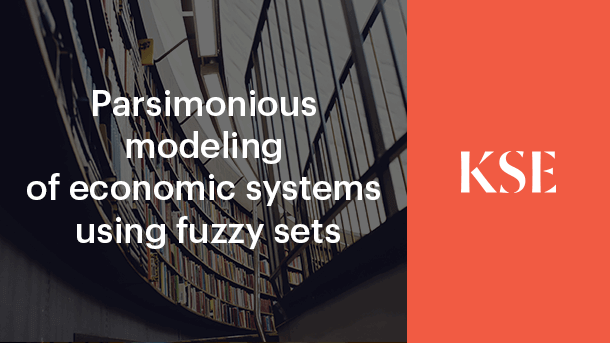- Kyiv School of Economics
- Private: Calendar
- Lecture “Parsimonious modeling of economic systems using fuzzy sets”
Description

Economic and financial analysis often needs finding of homogeneous groups of companies/entities in terms of their health status. This demands grouping of companies in terms of a set of measured attributes such as Economic Value Added, Net Income, Equity and Stock Price. Certainly the boundary between groups representing, say, healthy banks and sick banks, as an example, is gradual, not abrupt and this makes fuzzy modeling an ideal choice for this. There are many such problems in economics. In this talk, we shall discuss how fuzzy sets and systems could be useful in economics. In particular, we shall consider applications of fuzzy clustering and fuzzy switching regression in analyzing economic systems. The talk will emphasize on the generation of several sparse models for both clustering and switching regression as parsimonious models are easy to analyze and understand. The talk will be made self-contained with a very brief introduction to fuzzy sets.
About the speaker:

Nikhil R. Pal — a Professor in the Electronics and Communication Sciences Unit of the Indian Statistical Institute. His current research interest includes brain science, computational intelligence, machine learning and data mining.
He was the Editor-in-Chief of the IEEE Transactions on Fuzzy Systems for the period January 2005-December 2010. He has served/been serving on the editorial /advisory board/ steering committee of several journals including the International Journal of Approximate Reasoning, Applied Soft Computing, International Journal of Neural Systems, Fuzzy Sets and Systems, IEEE Transactions on Fuzzy Systems and the IEEE Transactions on Cybernetics.
He is a recipient of the 2015 IEEE Computational Intelligence Society (CIS) Fuzzy Systems Pioneer Award. He has given many plenary/keynote speeches in different premier international conferences in the area of computational intelligence. He is a Distinguished Lecturer of the IEEE CIS (2010–2012, 2016–2018) and was a member of the Administrative Committee of the IEEE CIS (2010–2012). He has served as the Vice-President for Publications of the IEEE CIS (2013–2016). He is serving as the President of the IEEE CIS (2018–2019).
He is a Fellow of the National Academy of Sciences of India, International Fuzzy Systems Association, The World Academy of Sciences, and a Fellow of the IEEE, USA.
President of the IEEE Computational Intelligence Society
Date and time: June 8, 7 PM
Venue: Dmytrivska St, 92-94, room 403
